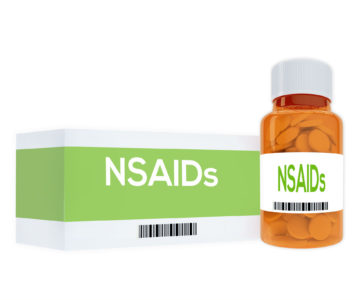 NSAIDs and COX-2 inhibitors are commonly prescribed to patients in the wake of a painful injury or following surgery. These medications work to limit pain and inflammation after acute trauma, and they can help make life a little more bearable as you recover. However, recent studies have sought to determine if the anti-inflammatory options may actually be having some unintended effects following certain surgeries. In today’s blog, we explore if anti-inflammatory medication may increase your risk of nonunion or delayed union following an ankle fracture.
NSAIDs and COX-2 inhibitors are commonly prescribed to patients in the wake of a painful injury or following surgery. These medications work to limit pain and inflammation after acute trauma, and they can help make life a little more bearable as you recover. However, recent studies have sought to determine if the anti-inflammatory options may actually be having some unintended effects following certain surgeries. In today’s blog, we explore if anti-inflammatory medication may increase your risk of nonunion or delayed union following an ankle fracture.
Ankle Fractures and NSAIDs
For the study, researchers took at look at a group of patients who underwent ankle fracture repair between 1998 and 2018. 3,264 patients who were prescribed NSAIDs following ankle fracture surgery were compared to 3,264 patients who did not receive NSAIDs following their ankle fracture repair. Researchers sought to see if either group was more likely to have nonunion or delayed union at six months post-op, or if one was was more likely to need a second operation because of an issue with the first.
After looking at the data, 2.05 percent of patients had nonunion or delayed union, and 30.8 percent of those patients underwent a secondary operation to correct the issue. But when looking at NSAID use, researchers uncovered some encouraging results. NSAID users actually showed a significantly lower likelihood of nonunion compared to patients who did not take NSAIDs following the procedure. All other measurable outcomes showed no significant differences.
However, researchers did note that it appears that patients may not want to rely on NSAIDs for an extended period following after surgery. Researchers found that if patients continued to take NSAIDs regularly for longer than three weeks, their likelihood of nonunion or delayed union was significantly higher. In other words, NSAIDs should be taken shortly after surgery until the initial pain, swelling and inflammation resolve, then patients should consider weaning off the anti-inflammatories and looking towards other rehabilitation techniques to control discomfort.
NSAIDs can play a crucial role in helping to manage discomfort in a patient following ankle fracture surgery, and they do not appear to decrease the likelihood of bone union in the short term. Extended use of NSAIDs could potentially complicate your recovery, so consider talking to your foot or ankle surgeon if you believe you need to continue a painkiller or anti-inflammatory regimen beyond the normal timetable.